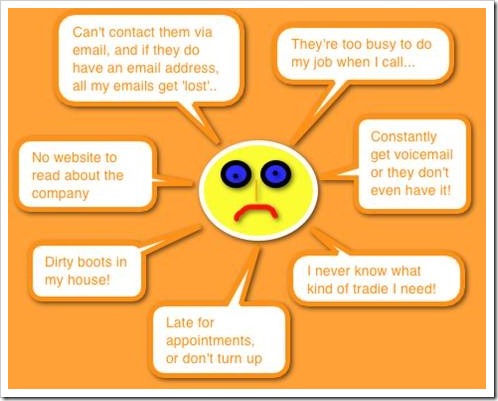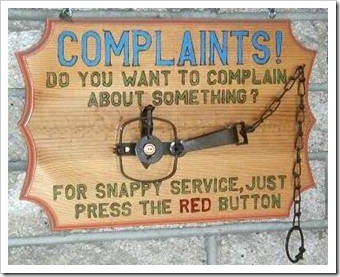It is better to light one small candle than to curse the darkness
– Confucius

Some people think that life is hard and that the harder it is, the more people complain about it. I tend to think it works the other way around – the more we complain about life, the harder it becomes.
When my youngest sister traveled to the Far East at the age of 20, I made her a journal with many quotes and wishes to accompany her on her journey, which was supposed to take between 6 months and a year. I clearly remember writing “May you stay away from whining, complaining people, for they suck the energy from you”. That happened about 20 years ago, but I still think that complainers make life harder for those around them.
I was a complainer myself until the age of 16. My life has had very distinct turning points and 16 was a big one when I switched from being a complainer to being “action girl” and that was empowering and gave me a lot of control over my life.
We all have things we are not happy about. We just have to be careful not to allow them to take over our entire life. If you are a complainer, there is probably one big reason happiness does not knock on your door – complaints repel happiness. While one occupies your mind, the other one runs away.
The dictionary defines a complaint as a statement that a situation is unsatisfactory or unacceptable. A complaint is a statement that “something is wrong”, but when you see too much “wrong” around you, you start to believe it to be reality. The problem is that some people consider complaining to be a useful form or expression and even part of their identity. Constant complaining starts from insecurity and is very unhealthy for your mind, body and soul.
Complaining is a way of expressing pain or grief. It is healthy to do it with a professional person, like a life coach or a therapist, but not with those who are close to you. When you express your “something is wrong” feelings, a life coach or a therapist will help you focus on solutions and direct you away from this state, while a person without the skills or knowledge will suffer for a while and then start to avoid your company instead.
Everything you wanted to know about complaints and complainers
Constant complaint is the poorest sort of pay for all the comforts we enjoy
– Benjamin Franklin
Unhappy complainers

Complainers are very unhappy people, because every time they complain, it is a reminder that things do not happen the way they want. This keeps them focused on what they do not want in life. It is like dreaming of being adventurous and being afraid to leave the house. One good strategy to overcome this is to make a list of what makes you happy and notice that your focus changes from what is not good to what is good.
Energy consumers
Complainers are energy consumers. Their constant focus on problems and what does not work sucks energy and hope from themselves and from others. Therefore, complainers are usually a bit lonely and do not have many friends. They usually hang around those who must stick around (their family), while others try to avoid their company. If you are a complainer, do not be surprised if others do not like spending time with you. Think of compliments you can give others instead. Complaints make people run away from you, while compliments bring them closer and makes them like you.
Complaints as self-expression
Some complainers develop this habit as a form of self-expression. They believe it is their right to express their feelings. In my work with parents, I find that many parents raise little complainers because they think it will be worse if the kids do not express their frustrations and anger. Complaints are not the same as expressed complaints. It is not healthy to think them, but it is much worse to express them.
If my husband is doing something I do not like, it is OK for me to think that I do not like it, but I do not have to say it every time he does something I do not like. Expressing anger, frustration and unhappiness is reasonable as long as the expectation from the listener is just to listen. As soon as the listener is required to do something about it, it stops being an expression of feelings and becomes a complaint.
Distinguish between the two. Venting to someone is OK, but if it takes over the relationship, it will not last long. If you think the listener must do something to make you feel better and you say it to him/her, you are complaining.
Bitching session

If you happen to be in a bitching session, do not participate. If you can, leave or say, “I don’t like bitching sessions”. It is a game people play to feel accepted and to be part of a group. Secure, confident people are not tempted, because confidence comes from knowing you can change your life. Work on your self-esteem instead.
Criticism is not caring
Many complainers are very critical of themselves and others. This is usually a sign that they have developed a belief that criticizing is a form of caring. The source is during their childhood, when someone important to them kept criticizing them and saying, “I only want what’s best for you”, and in order to cope with this hard feeling, they have created a link between criticism and caring.
Criticism is a form of complaint. It focuses on what is wrong and does not leave space for appreciation and real caring. If you are a parents and you wonder how you can still teach you kids without telling them what is wrong, the answer is, “Tell them what is right and help them move towards it. It will make them very focused, happy and successful kids and, later, focused, happy and successful grownups”.
Join me next week for some more information about how to deal with complaints and complainers.
Be happy,
Ronit
This post is part of the series Complaint-free Life:
- Complaint-free Life: Complaints and Complainers
- Complaint-free Life: What are you complaining for?
- Complaint-free Life: How to Stop Complaining











